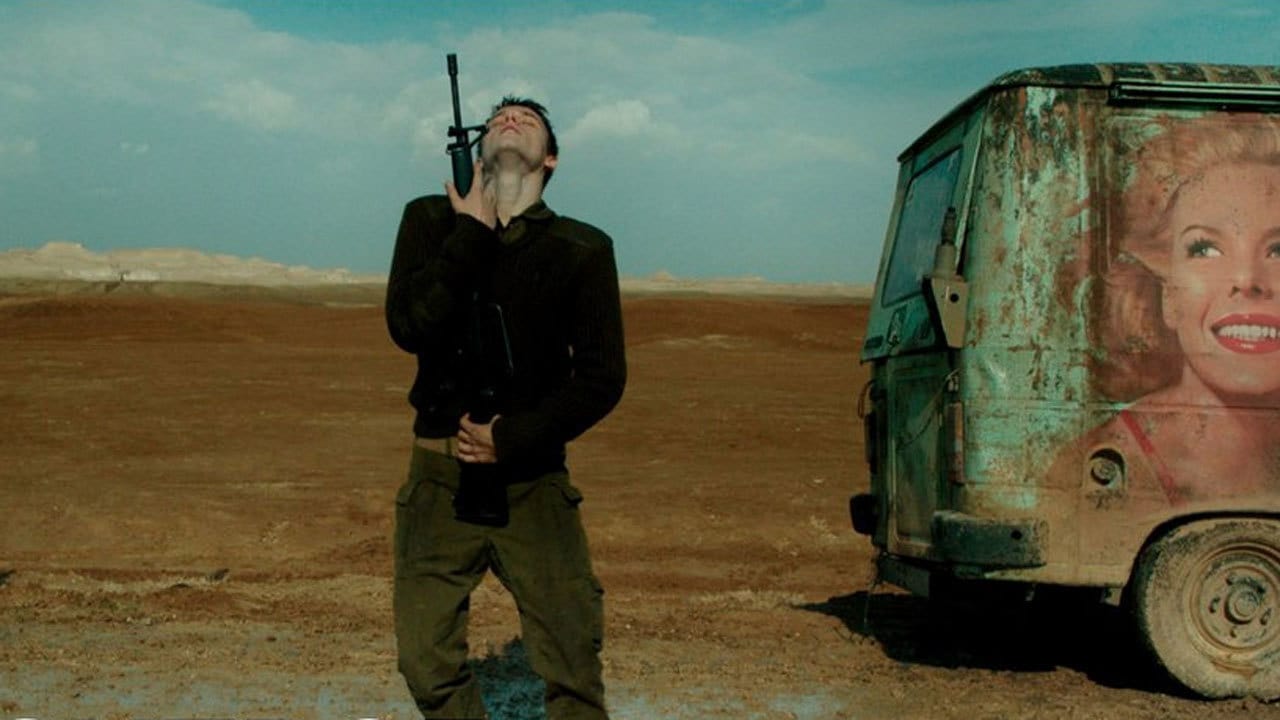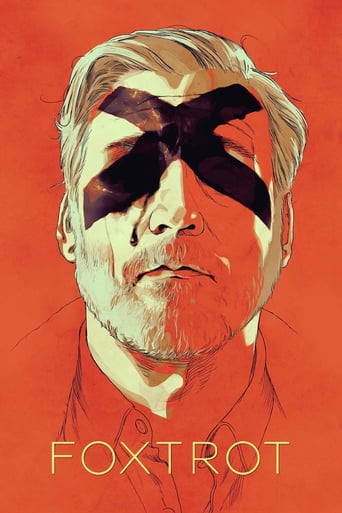



It's no definitive masterpiece but it's damn close.
View MoreA terrific literary drama and character piece that shows how the process of creating art can be seen differently by those doing it and those looking at it from the outside.
View MoreThis movie tries so hard to be funny, yet it falls flat every time. Just another example of recycled ideas repackaged with women in an attempt to appeal to a certain audience.
View MoreIt's a movie as timely as it is provocative and amazingly, for much of its running time, it is weirdly funny.
View MoreThe film is unique in that it creates emotional stress by constructing a sense of space. The comical backtracking at the end is a genius. In contrast, some dialogues are somewhat lengthy. The integration between the fatalistic theme and poetic photography failed to be tuned to the best. Therefore, when many of the seemingly idle (not actually) shots are already stunning enough, the film's over-construction in the play seems to be somewhat slightly redundant.
View MoreThe foxtrot - a happy, spirited dance - is here a metaphor for quite the contrary: the hopeless ritual in which Israelis and Palestinians find themselves locked. They take a step forward, a step sideways, then it's back to their starting point. Instead of progress there's stasis - a malevolent antagonism and paralysis. With the macro dance not working, you seek comfort in the micro. You dance with your own, smoothing out differences and alienation so you can carry on. That's what Michael and his Dafna do at the end, overcoming their separation. The soldier's solitary dance with his rifle is the alternative to a couple or communal dance - solitary, masturbatory, an unconstructive indulgence. In the national context, citizens adapt to each others' errors and transgressions. They remain united against their common mortal enemy. That's why the army here covers up the accidental murder of the carload of young Palestinians. The film examines the moral cost of surviving in Israel's situation, besieged by a genocidal enemy. A mistaken identity can ruin a whole family of lives. The Feldmans fall into profound grief - till they learn the dead soldier is a stranger with their son's name. We don't see the other Feldman family's pain, but we can guess it. Indeed, the army rabbi's visit here suggests how common these deaths are in Israel, how ritualized their procedure has become. An hourly phone call reminds the bereaved to drink a glass of water. This is the normalization of loss -and it carries a psychological and moral cost. At the first death report Michael is buried in grief, frozen. In his sensitivity every sound registers loud: his body hitting a bed, the dog hammering the door to get in. In his repressed rage Michael kicks his pet, in impulsive anger that that life survived his son. But the dog remains faithful, tentative in his returns but always coming back to him. Like the Israeli citizens persisting under attack, he bears his pain and carries on. But like the other Israelis, the dog is silently bleeding within. Jonathan's actual death - on the trip home Michael insisted upon - splinters the parents' marriage. By now Michael has experienced enough grief to start handling it. He recovers his comfort, joy and marriage - by smoking weed with Dafna. That's the secular alternative to religious consolation. In contrast, Michael's mother has slipped from her nervous breakdown into dementia. Her speaking German instead of Hebrew shows her rooted in her past. She claims to register Jonathan's death -- but then confuses Michael with his brother Avigdor. The film shows a secular Israel. These Feldmans are non-observant. The story of trading the family heirloom Bible for a porn magazine handily conveys at least these Israelis abandoning religious tradition for the modern realities of life. As they face annihilation, pragmatism holds sway. In that existential danger even something commonplace can have soul-wrenching consequences. Hence the three traffic accidents. In the first Michael remains traumatized with unnecessary guilt for having sent another vehicle ahead of his own on the highway - to a mortal mine. That's the guilt hidden beneath the film's innocent opening shot. Only after he finally shares this secret with Dafna can they reconnect. He also feels responsible for his mother's breakdown. Son Jonathan machine guns a car when he mistakes a dropped pop-can for a grenade. If he escapes man's justice, he's killed in an absurd traffic accident en route home. His death, by the way, is absurd enough to be read as divine justice. When Jonathan draws a cartoon of the bulldozer hoisting the car (i.e., his guilt) to bury it, he's recording what his superiors have allowed him to keep secret. Dafna keeps the drawing, unaware of its implication. As Jonathan cartoons his father's Last Bedtime Story, a coming of age ritual, it's important that he include this personal admission of responsibility. There are plenty of justifications for not turning the accident into an international attack on the state fending off annihilation. The use of background artworks shows the care in this film's realization. Dafna's fainting reveals the drawing behind her, a large layering of black squares jumbling into the distance. The emblem of order and stability - the square - here expresses a vertiginous confusion. A high angle shot then spins above Michael against a floor of geometric squares, similarly dizzying and unstable. When Dafna moves the painting into another room it hangs tilted, askew, compounding the instability of even the stable. Michael's den has another black and white abstract painting - a fuzzified horizon line that evokes an ECG. Finally, Jonathan's secularity and sexual awakening are imaged in the washed out pinup girl face on the soldiers' metal barracks. Of course, that emblematic shed is sinking into the mire, endangering its young future. The Israeli government hates this film because that impulsive murder scene might be taken to imply that such IDF errors are frequent not freakish. Or worse, deliberate. But the tensions from Israelis living under constant threat of attack, especially for a handful of young soldiers alone at a remote security point, makes Jonathan's impulse understandable. Writer/director Samuel Moaz makes his focus the Israeli response to the Palestinian threat so he doesn't retell its history. The Palestinian citizenry here are themselves victims of the Palestinian assault against Israel - via Israels' defensive measures. Moaz's subject is the situation's challenge to the Israelis' moral compass. He's examining the Israeli's frozen foxtrot, not the Palestinians'. But the lesson holds for both partners not yet dancing together. This film is an insightful, moving revelation. Its dramatic shifts in tone, with surprises and shock at every turn, make this an emotional roller-coaster. But in framing out the Palestinian attack, in taking that context as understood not restated, the film may be read as suggesting that the Israeli moral compass causes the regional problem. Under existential threat what alternative does Israel have to hard security measures? Where are the Palestinian films that question the genocidal campaign that has for a century prevented their peaceful coexistence? After all, it takes two even to foxtrot. Finally, credit to Moaz's implicit revision of Chekov: A camel planted in Act 2 must go off in Act 5.
View More'Foxtrot' begins with a woman, Dafna (Sarah Adler), opening her front door, seeing who is on the doorstep and immediately fainting. Moments later her husband Michael (Lior Ashkenazi, possibly Israel's busiest actor) is told by three members of the Israel Defence Forces (IDF) that his and Dafna's son Jonathan has been killed on military service. The IDF take over everything, arranging the funeral, dispensing sedatives to Dafna and setting alarms on Michael's telephone to remind him to drink every hour. Then the scene shifts and we are at Jonathan's lonely desert outpost, where the soldiers - when not sleeping and eating in a slowly-sinking shipping container - man a grubby checkpoint used most regularly by an unaccompanied camel. A final scene change brings us back to Dafna and Michael on what would have been Jonathan's twentieth birthday.I found the middle and final segments the most interesting: although not a lot happens at the checkpoint, the segment set there is an interesting study on how boys from comfortable middle-class backgrounds cope when handed guns and forced to live in squalor. The bereaved parents' conversation in the third segment, in which we see how their loss has affected their relationship, is terribly bittersweet. By contrast, the first segment has a curiously episodic feel to it that may be intended to convey how Michael stumbles through the hours immediately after learning of his son's death, but I found rather jarring. On the whole, though, this slow-moving film is well worth watching.
View MoreFoxtrot is a movie about fate, life, death, war, youth, love and dancing. Flawless beauty resides in almost every aspect of the film; the amazing direction, vivid cinematography and incredibly intense acting perfectly portrait a fabulous 3-act tragedy. This film is a joy to watch and a terrific work of art.
View More